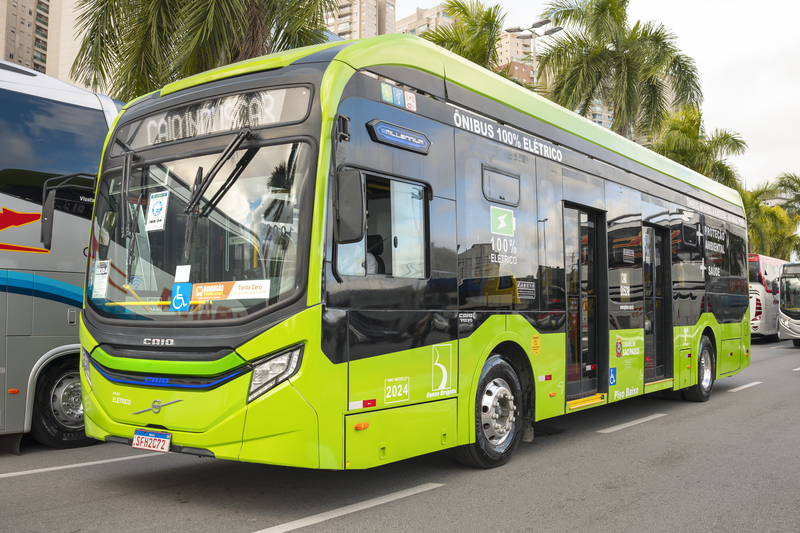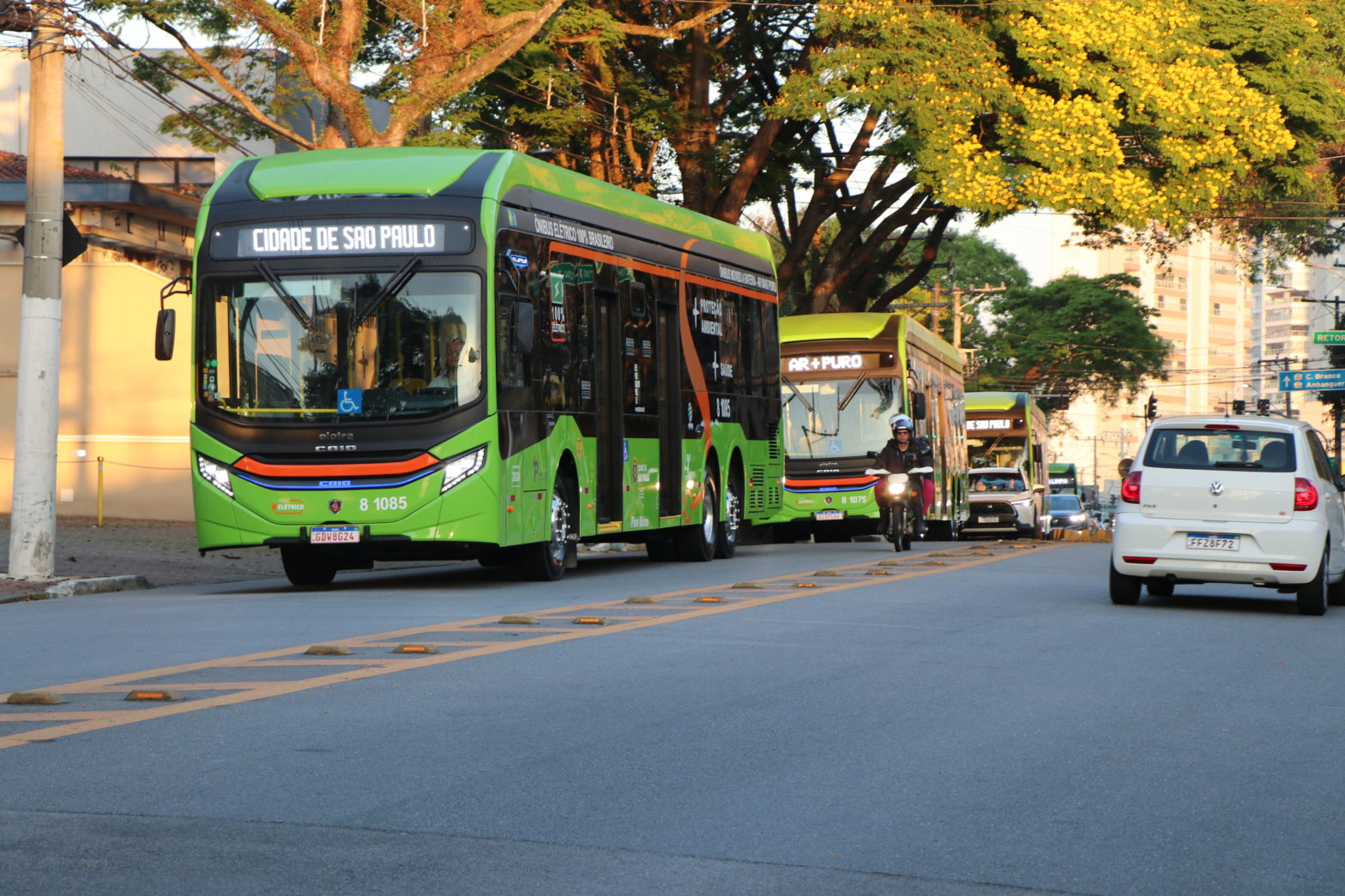
Brazil launches new e-bus finance model
05 November 2025
by Jonathan Andrews
Brazil has launched a first-of-its-kind financing mechanism designed to help cities overcome one of the biggest barriers to decarbonising public transport: access to affordable capital.
The new €80 million Brazil E-Bus Credit Enhancement Fund aims to de-risk investment for lenders and make borrowing cheaper for cities and bus operators, unlocking around €450 million in private finance to deploy more than 1,700 electric buses by 2030.
Announced at the COP30 Local Leaders Forum, the fund will use blended finance to reduce the perceived risk of lending to e-bus projects. It combines public and philanthropic first-loss capital with an anchor investment from BTG Pactual to provide more favourable loan terms to cities and operators.
In practice, this means that if a loan defaults, the first-loss capital absorbs the initial losses, giving banks greater confidence to lend at lower interest rates and over longer periods. Technical assistance will sit alongside the financing to strengthen policy frameworks, improve project preparation and grow local manufacturing capacity for e-buses and charging infrastructure.
Speaking to Cities Today, Cristina Clopatofsky, Programme Manager at Catalytic Cities, said the design of the fund draws directly on the challenges cities have faced in accessing finance for electric fleets.
“C40‘s work was instrumental in securing the political ambition for a transition to electric bus fleets through the Green and Healthy Streets Accelerator, enabling cities to make policy changes so procuring e-buses is the norm, not the exception,” she said. “Beyond the social and environmental benefits of e-buses, C40 made the economic case for the overall Total Cost of Ownership savings from electric bus adoption and promoted new business models to help accelerate investment, helping cities set ambitious e-bus targets and develop large-scale projects.”
Brazil’s Ministry of Cities, Ministry of Environment and Climate Change, Bloomberg Philanthropies, the Mitigation Action Facility and WRI Brasil are behind the initiative, with BTG Pactual contributing €24 million as the anchor investor. A planned first-loss grant from the Mitigation Action Facility is intended to protect senior lenders and lower their exposure to risk. WRI Brasil will also lead a €25 million technical assistance programme to support policy reform, financing tools and domestic supply chains.
Clopatofsky said this structure directly responds to what city leaders have been calling for.
“The Credit Enhancement Fund will offer flexible financial tools for cities and private operators to access financing on concessional terms,” she said. “It will be complemented by a broader programme supporting the wider enabling environment, including policy frameworks and local manufacturing capabilities.”
Michael Bloomberg, UN Secretary-General’s Special Envoy on Climate Ambition and Solutions, said the initiative could have global relevance: “This fund will help to deploy zero-emissions buses in cities across the country, while also sending a message to the world that when it comes to global progress, the more nations look to local and private sector leaders as full partners, the faster we’ll move.”
If successful, the model could become a template for other regions seeking to unlock climate finance for zero-emission transport.
“It is realistic, and success elsewhere will depend on strong political will and local ownership,” said Clopatofsky. “Where city leaders set clear e-bus targets and align policies behind them, this model can be replicated.”
She sees the strongest near-term potential beyond Brazil within Latin America.
“In the immediate future, Latin America offers the greatest potential, with many medium-sized cities having ambitious e-bus commitments but lacking access to affordable finance for their transition,” she said. “Beyond the region, C40 will continue to explore opportunities to accelerate the deployment of electric buses in other countries in the Global South.”
A wider push to empower city-led climate action
The launch of the e-bus fund comes as Bloomberg Philanthropies steps up efforts to strengthen the role of cities and regions in global climate action. During the COP30 Local Leaders Forum, Bloomberg announced a new US$168 million commitment to accelerate multilevel climate collaboration, expand access to finance for subnational projects, and support city networks including C40 and the Global Covenant of Mayors. The funding will also help 50 Brazilian cities implement projects on clean transport, methane reduction and resilience.
Image: Marcelo Olecram | Dreamstime.com













